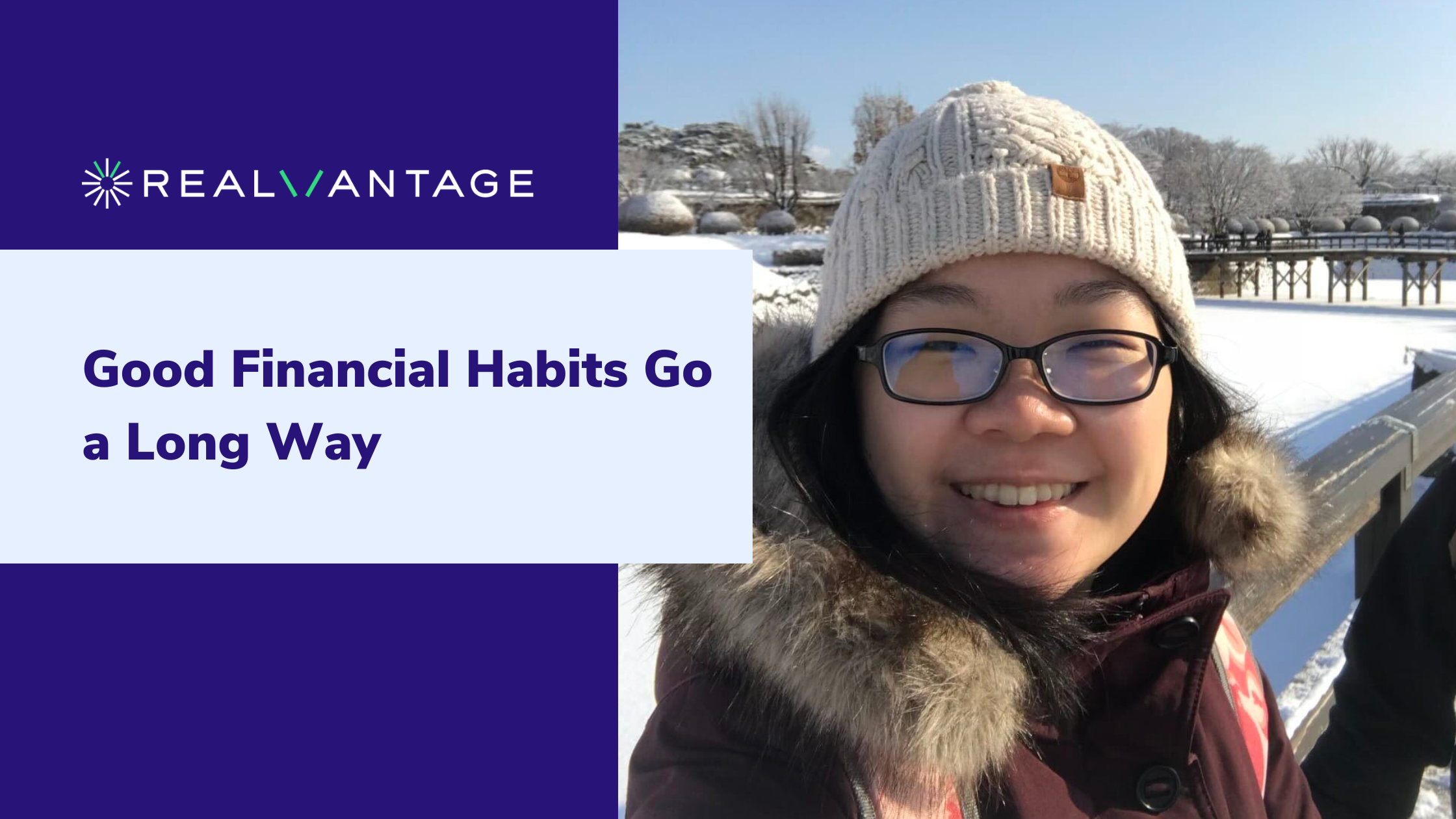Good Financial Habits Go a Long Way
Joyce Lee has always prioritised financial independence, saving and investing from a young age. Learn how these habits shaped her investing perspective and benefited her.

From young, Joyce Lee has been well-mentored in all things money by her mother, who took care of financial matters and investments for the family. To this day, she can still vividly remember the stock tickers that used to be listed on what was known as the ‘Teletext’, carried on various television channels of yesteryear.
“I come from a stable, middle-income family, and I stash most of my pocket money away, either investing it or keeping it as an emergency fund,” says the 33-year-old legal counsel in public service, who is also a mother of two young children.
Recounting her growing-up years, Joyce says that whenever she was able to save around $50 to $100 of her pocket money, she would always enthusiastically pass those savings to her mother, who would then invest them on her behalf — mostly in blue chips. Her mother would subsequently inform her of the returns she had made from her investments.
“I have no idea whether the stock really did make money or not. All I knew was that I enjoyed a fairly healthy ROI from my investment!” she says with a chortle.
It then became natural for Joyce to start investing after graduating from university, as she started earning her keep and wanted to put her money to work harder instead of nesting it idly in a savings account.
A sense of financial independence from young
Joyce has always known the importance of managing her finances well.
During her younger days, having money meant that she could make choices about things that mattered to her. These include which school to attend or what extracurricular activities to participate in, without having to burden her parents financially or deal with any potential ultimatums, such as having her belongings confiscated by her parents if she did not perform well in school.
Having money, and being in control of it, gave Joyce a sense of independence since young. And that awareness has benefited her all these years.
Excess cash should be invested and made to work harder
As much as Joyce is aware that investing is important, she does not have the luxury of time to develop ambitious investment strategies to grow her money. Her impetus to invest is usually triggered when she perceives that her savings account balance is significantly “fatter” than it should (as she saves a lot), and the guilt that results from not making her money work harder than it should. And when that happens, she will spend a few weeks paying more attention to financial news or what her friends who invest say, and identify suitable investment opportunities.
Joyce and her husband are both earning a respectable salary and are conservative in spending. As a result, their consolidated earnings typically outstrips their spending by a lot.
“So, when the funds in our emergency savings account start to ‘overflow’, we would start to think about what to do with the excess money,” she says.
Taking small steps to grow her ‘little pot of money’
Joyce is mindful that it is important to invest her money, but also believes that there is no need to be too obsessed and anxious over her investments. She prefers a long-term approach to investing instead of the get-rich-quick ways of investing.
“Some people hope to achieve financial independence quickly and take short cuts by investing heavily and riskily in highly volatile investments. For me, I adopt a long-term approach as I want to avoid all that stress and anxiety,” she opines.
She adds: “Quick fixes don’t work for me. I prefer to pace myself and take small, baby steps to grow my ‘little pot of money’. Even if my returns may not be the best, I get to spend sufficient time with my family and won’t suffer from sleepless nights worrying about how my investments are doing. For these reasons, I would still think that my investments are successes.”
Come to terms with your risk appetite
In Joyce’s opinion, a successful investor is someone who knows what he wants to get out of investing, proactively takes action to use his money to achieve that, and does so by being open to different investment options. And she aspires to be someone like that.
Of her current investment portfolio, 40% is invested in blue chips; 20% invested in real estate investment trusts, or REITs (as she favours small and steady streams of dividend income); and 40% is invested in a combination of bonds, real estate, and investments with robo-advisors.
“With rewards comes risks, so it is important to take steps to mitigate such risks because nobody wants to achieve success and sacrifice too much in the process. It’s all about understanding your own level of risk tolerance.”
She concedes that some may perceive her investment portfolio to be risky. But being only in her thirties, she believes that she can afford to take some risks at this stage of her life.
“Think about what you want to achieve from investing, but also think about what you do not want to sacrifice when investing. Ideally, you should find investment options that can help to get the best of both worlds,” says Joyce.
She adds: “With rewards comes risks, so it is important to take steps to mitigate such risks because nobody wants to achieve success and sacrifice too much in the process. It’s all about understanding your own level of risk tolerance.”
Real estate investing without going “all in”
Like many investors, Joyce has always been keen to invest in real estate but reluctant to park all her investible funds in just one property.
“RealVantage has made my real estate investment journey a breeze. It has given me the opportunity to dip my toes in overseas real estate investments, without having to commit a large part of my assets to these investments…”
“I don’t have the appetite or the gumption to go ‘all in’,” she comments.
And her first-hand experience of the hassle and stress of living as a tenant and dealing with a landlord, made her realise that she would have no desire to relive that experience. That is why co-investing in and fractionally owning real estate through RealVantage appeals to her.
She opines: “RealVantage has made my real estate investment journey a breeze. It has given me the opportunity to dip my toes in overseas real estate investments, without having to commit a large part of my assets to these investments. I also believe that investing through this fractional approach will help to grow my knowledge and confidence in overseas property investments.”
As a long-term investor, Joyce feels that parking her funds in real estate investment projects offered by RealVantage, which mostly comes with an investment period ranging from three to five years, is a good investment move.
She also notices that the recent core Sydney CBD office deal offered by RealVantage, which has an investment period of only one year, was so well received that it was fully subscribed within days.
“This goes to show that investors are confident about the prospects of this defensive investment opportunity, and demonstrates that RealVantage offers a good mix of projects to suit the needs of different investors,” she remarks.
About RealVantage
RealVantage is a leading real estate co-investment platform, licensed and regulated by the Monetary Authority of Singapore (MAS), that allows our investors to diversify across markets, overseas properties, sectors and investment strategies.
The team at RealVantage are highly qualified professionals who brings about a multi-disciplinary vision and approach in their respective fields towards business development, management, and client satisfaction. The team is led by distinguished Board of Advisors and advisory committee who provide cross-functional and multi-disciplinary expertise to the RealVantage team ranging from real estate, corporate finance, technology, venture capital, and startups growth. The team's philosophy, core values, and technological edge help clients build a diversified and high-performing real estate investment portfolio.
Get in touch with RealVantage today to see how they can help you in your real estate investment journey.
Disclaimer: The information and/or documents contained in this article does not constitute financial advice and is meant for educational purposes. Please consult your financial advisor, accountant, and/or attorney before proceeding with any financial/real estate investments.
